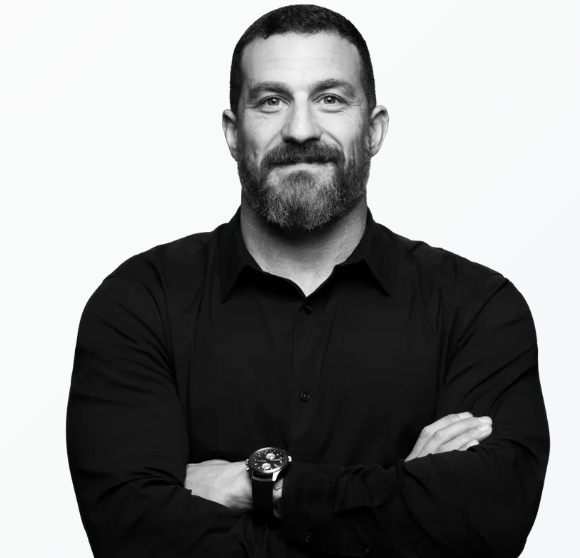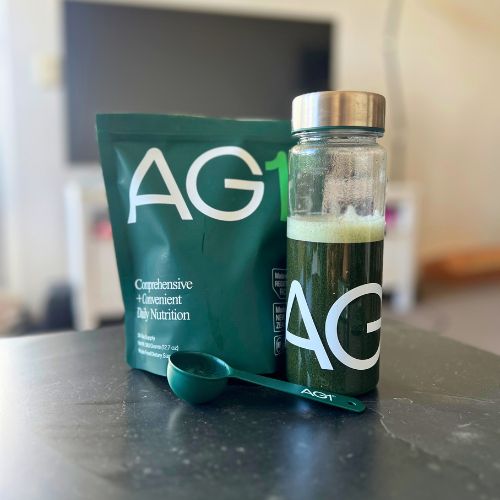Andrew Huberman, the neuroscientist that rose to prominence thanks to his top rated Huberman Lab podcast, has become a leading authority on living a longer, healthier life. He covers a wide range of healthy living habits. A lot of attention goes into the supplements he takes. There’s however plenty of curiosity on his food and fitness routine. Diet and routine is after all, much more important to wellbeing – supplements are only meant to amplify a positive lifestyle.
He is meticulous about his meals and routine. Andrew has followed a relatively consistent routine for the last 10-15 years. He has not been shy about articulating what he takes/does on his podcast and other interviews.
We'll take a look at his diet including the science they are founded on. Let's start with a summary of the key points:
summary of diet & routine
Andrew Huberman’s Diet and Fasting Approach
Nearly every food Andrew takes has a specific objective – from building muscle and improving gut health, to enhancing sleep quality and boosting thought clarity. That said, he considers what he eats to be just as important as when he eats it.
Notably, Andrew is a passionate proponent of intermittent fasting. He doesn’t just talk about it – he has lived it for more than 10 years. Intermittent fasting has multiple benefits if the research is anything to go by. These include preventing or treating type 2 diabetes, improving brain function, slowing cognitive aging, enhancing metabolism, strengthening heart health and reducing excess weight.

There are different ways to practice intermittent fasting with the main ones being time-restricted fasting, alternate-day fasting or a meal a day. Andrew follows the time-restricted approach. He usually fasts for 12-16 hours each day by restricting all his meals to an 8 to 12-hour window. Andrew takes his breakfast at 11am or noon shortly after his morning workout. He does his last meal at about 8pm.
While fasting of any kind is often perceived as synonymous with weight loss, Andrew has pointed out that it is not his primary reason for getting on intermittent fasting. In any case, he still takes all the calories his body needs during his meals. Instead, he’s training his body to follow a consistent pattern. in the same way a consistent sleep pattern is vital in maintaining circadian rhythm balance, predictable meals have a positive effect on multiple physiological functions including the circadian clock.
Morning Nutritional Choices
Andrew wakes up at about 6:30am give or take an hour depending on what time he slept. His morning diet starts off shortly after his morning workout. So sometime between 11am and noon, Andrew will have his first and heaviest meal of the day comprising steak or ground beef, Brazilian nuts, olive oil and some starches or vegetables.
During the days of the week when he does resistance training, he takes a whey protein shake and a bowl of oatmeal to speed up recovery. He prefers a low carbohydrate diet to avoid the sugar-driven energy crash that would make it difficult to maintain his energy levels and mental clarity.
He also takes Athletic Greens AG1 either first thing in the morning (before his workout) or around 10-11am (after the workout). You can buy AG1 here.
Notably, Andrew delays his caffeine intake by 90-120 minutes after waking up. The delay is aimed at minimizing the disruption to a normal, healthy increase in cortisol – cortisol disruption is at the root of energy crash in the afternoons. A caffeine delay does not just push any energy dip to later in the day (and closer to sleep time) but it also makes it less severe.
He hydrates daily but takes it up a notch on his resistance training days (which he does thrice weekly). So on ‘normal’ days, he takes a salt heavy electrolyte drink – LMNT. For those who want a lower cost alternative, Andrew recommends using lemon juice and a little sea salt. Since he is on a low carb diet (and thus low processed foods), this drink restores his salt intake level to healthy, acceptable levels.
On his resistance workout days, he brews his own yerba mate drink. Yerba mate contains slightly less caffeine than coffee but, importantly, is devoid of the energy crash coffee is notorious for.
Afternoon and Evening Dietary Habits
For lunch, Andrew’s meal will have some protein such as scrambled eggs, beef, chicken or fish. Where these natural protein sources are not available, he’ll do a whey protein from Momentous (a supplement making company he has a business partnership with). He will have a vegetable salad with either olive oil vinegar or lemon juice. On the days he is not doing resistance training, he will have an orange with his lunch. On some days, he will have an afternoon snack of macadamia nuts or something similar.
Andrew typically takes his last meal about three hours before bed. This translates to roughly 7-8pm given he goes to bed between 10 and 11pm. This is meant to give his body enough time to digest his food before it gets on the low metabolism state characterized by sleep. Multiple studies have shown that late night meals can lead to metabolic disorders, weight gain and sleep disruption.
Andrew’s dinner is usually more starchy though not heavy. It typically contains some pasta, rice and/or sourdough bread. There will be some protein such a small amount of fish, lamb or beef. Andrew takes cruciferous vegetables too in salad or cooked form.
Supplements and Hydration
Huberman has been vocal about taking supplements to support his dietary choices but has emphasized you cannot supplement yourself out of an unhealthy diet. He takes dozens of supplements on a regular basis. We have already mentioned a number in the context of his morning, afternoon or evening routine. The comprehensive set of supplements is as follows:
Exercise and Physical Activity
Andrew has what you would call a buff physique. Physical exercise remains at the core of his lifestyle and works in tandem with his dietary choices. For example, his breakfast comes right after his morning workout and is meant to maximize muscle growth and recovery by stimulating protein synthesis.
He does resistance training every other day as well as cardio exercises and/or some sauna on the alternate days. Resistance training would usually involve a 10-minute warmup and about an hour of weight training. Either way, he does not train for more than 75 minutes as he believes that would inhibit his ability to recover in good time. The nature of his cardio exercises varies – for example, running multiple miles with a cooling interval after every mile or doing a dozen 100-200 meter sprints with 30-60 seconds breaks in between.
During his resistance training days, Andrew takes a protein shake and a bowl of oatmeal. The oatmeal is intended to replenish his glycogen. Andrew practiced Muay Thai in his early 20s, boxing in his 30s (even has a boxing license). He also skateboards once in a while, a carryover from his teenage years when he was an avid skateboarder.
His Sundays are dedicated to the outdoors and he tries to put in 90-180 minutes of walking or hiking. Andrew has shared his fitness toolkit on the Huberman Labs website.
Health Monitoring and Adjustments
While Andrew has maintained a relatively consistent routine for years, he does not take the effectiveness of his habits for granted. He does bi-annual blood tests to keep track of his health including picking up any changes for the better or the worse. The results of the tests inform any adjustments he needs to make to his diet, exercise regimen and supplement intake.
He recommends Inside Tracker, the blood testing and DNA analysis platform. It’s important to note that Andrew has a business partnership with the company.
Conclusion
Andrew’s carefully planned diet and exercise routine is designed to improve health and optimize performance. He combines intermittent fasting with an emphasis on nutrient-rich foods. While it can be hard for the average person to adopt the dozens of supplements he takes, his food and fitness routine is relatively straightforward.
You can apply it to your own lifestyle but do not have to do it in the exact same way. Each person has a unique mix of life circumstances, health goals, dietary preferences and medical conditions. Start off with what best aligns with your immediate health needs. Be open to experimenting and making adjustments for maximum impact. Listen to your body and work closely with your doctor.
Related articles: Andrew Huberman Supplements, Joe Rogan Supplements, Tim Ferriss Supplements.


